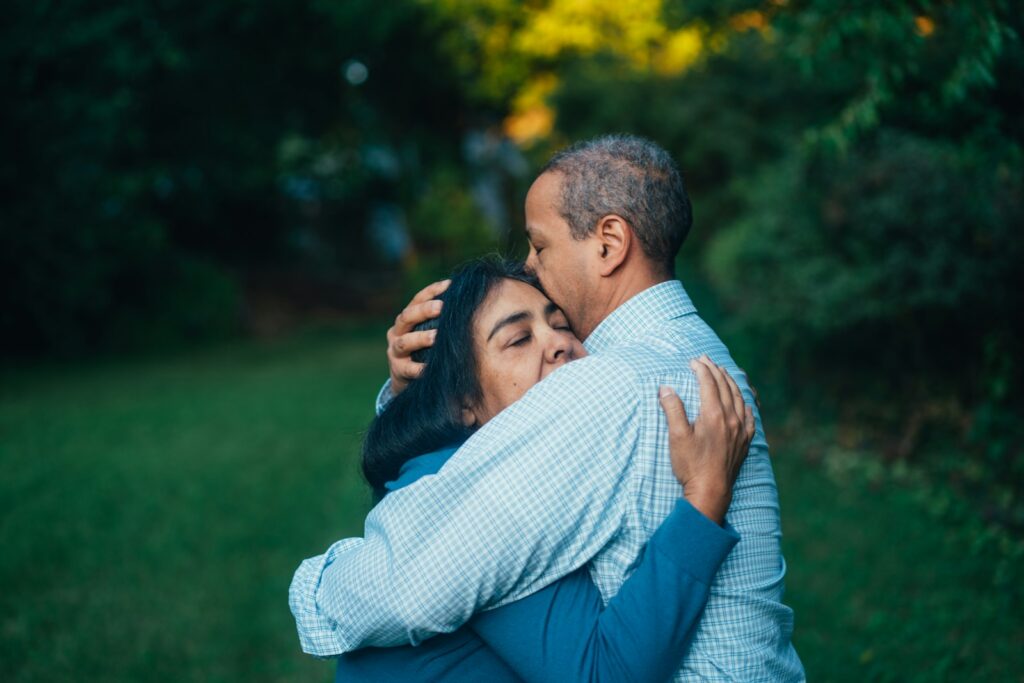To stand a chance of helping disabled women through the menopause, healthcare professionals need to provide better support. Lindsey Allen and Dr Louise Newson talk us through the path to a more inclusive future.
People with learning disabilities experience health inequalities that are well documented. The 2022 to 2023 Learning from lives and deaths (LeDeR) of people with a learning disability and autism review, found that people with learning disabilities die, on average, 20-30 years younger than the general population. One of the causes for this is that they receive a lower quality of care than expected.
Unfortunately, when it comes to the menopause, no exceptions are made. According to the most recent government figures, 13 million women in the UK are going through the menopause, including autistic women and women with learning disabilities. However, a lack of knowledge and awareness around the topic means many are experiencing the change isolated, scared and without support.
Moreover, women with learning disabilities and autism already face physical and mental health challenges. This adds an extra layer of complexity in accessing menopause treatment and care.
Though there is little research on autistic people’s experiences of menopause, experts from the National Autistic Society have reported that individuals can face intensified sensory activities, difficulty with emotional regulation, increased struggles with social interaction and communication and trouble with executive function, for example planning, focusing and multitasking.
This glimpse into what these people experience should prompt industry experts to do more to raise awareness around the topic. Individuals seem to have no problems discussing the horrendous reality that people with learning disabilities and autism are dying prematurely, but why are people bypassing the fact that they have to experience arguably one of life’s greatest discomforts alone?
Raising awareness of menopause
Since working for Bild – a national charity that works in partnership with people with learning disabilities and autism – I have taken part in tackling health inequalities to help people live longer, happier and healthier lives. As part of this, the charity has teamed up with GP and menopause specialist, Dr Louise Newson, who has been sharing her expertise to ensure all women receive the support they deserve.
Put simply, the menopause happens when the ovaries stop producing eggs and levels of hormones fall. This includes oestradiol (the most beneficial form of oestrogen), progesterone and testosterone. The change also occurs around 12 months after your last period and usually happens between the ages of 45 and 55, though some women can experience it sooner.
We know there are various challenges generally with awareness, for example understanding in detail what menopause and perimenopause is, and how it presents. The situation isn’t helped by numerous unhelpful myths that have been circulating for decades.
Some examples of the myths include:
- Menopause only happens later in life – although the average age of the menopause in the UK is 51, it can happen earlier in life. Menopause before 40 affects one in 30 women and is known as premature ovarian insuffiency (POI)
- Perimenopause is just when your period stops – perimenopause is the time directly before menopause. A women can still be experiencing periods but fluctuating and low hormone levels can trigger a whole host of symptoms
- Menopause impacts women physically only – whilst there are a myriad of physical symptoms, cognitive and emotional symptoms are among the most common and the most difficult to manage symptoms. Hormones including oestradiol, progesterone and testosterone all have important functions for the brain. Two studies of autistic women going through menopause in 20202 found menopause exacerbated existing cognitive, social, emotional and sensory issues
- Menopause only affects women – the impact of menopause is felt throughout society affecting women’s’ relationships with children, partners, family members and carers, friendships and careers
- Every menopausal woman experiences hot flushes and night sweats –although these can be common symptoms, many menopausal women do not experience flushes and sweats. Brain fog, low mood, anxiety, irritability, poor sleep, fatigue, muscle and joint pains, headaches and memory problems are often more common
During my time as a GP and menopause specialist, I have heard numerous examples of women recounting difficulties accessing support from healthcare professionals. One of the most upsetting, is many women believed their symptoms were related to their autism, when they are actually a consequence of their changing hormone levels.
Knowledge is key if we are going to better support menopausal autistic women and women with learning disabilities. Professionals and carers don’t have to have all the answers, but simply thinking ‘could it be menopause?’ could make all the difference.
Seeking treatment, such as hormone replacement therapy (HRT), usually improves symptoms that women experience. HRT is the first-line treatment to manage menopause symptoms and can help protect against the long-term health risks associated with low hormones. Women who take HRT have a lower future risk of developing heart disease, diabetes, osteoporosis, clinical depression and also dementia. Good menopause management also includes a holistic approach, such as a balanced diet and regular exercise, prioritising sleep and reducing stress where possible.
What symptoms should I be looking out for?
Women in your care may find it difficult to communicate their thoughts and feelings so familiarising yourself with the symptoms of menopause and identifying any changes in behaviour is important.
The type and severity of symptoms associated with perimenopause and menopause vary from person to person, but can include:
- Fatigue and insomnia
- Night sweats and hot flushes
- Low sex drive
- Brain fog, concentration and memory issues
- Low mood and anxiety
- Weight gain
- Headaches and migraines
- Vaginal dryness and soreness
- Recurrent UTIs and urinary soreness
- Joint and muscle pain
Lindsey Allen is Programme Lead for health inequalities and coproduction at Bild – a national charity that works in partnership with people with learning disabilities and autistic people drawing from research, evidence and best practice to ensure people are at the heart of their support.
Dr Louise Newson is a GP and Menopause Specialist and founder of Newson Health, the balance menopause support app and the CPD-accredited Confidence in the Menopause online education programme.
Images: Lindsey Allen, Dr Louise Newson and silviarita
More features:
Explainer: What exactly is the Personal Independence Payment?
Qualifications involve time, money and stress – Are they worth it?

















Leave a Reply